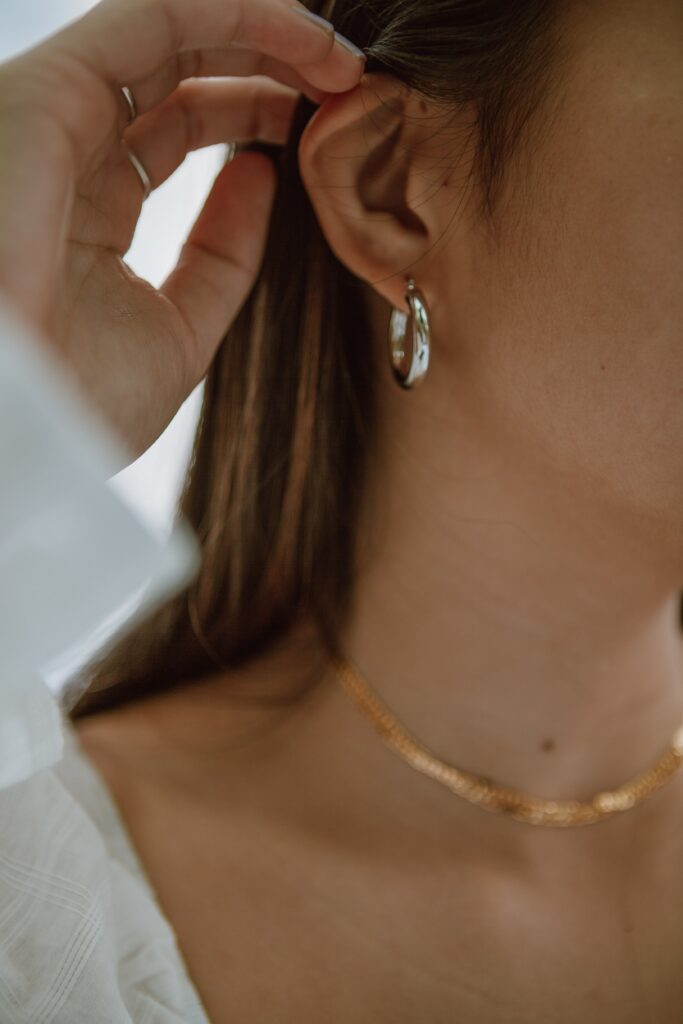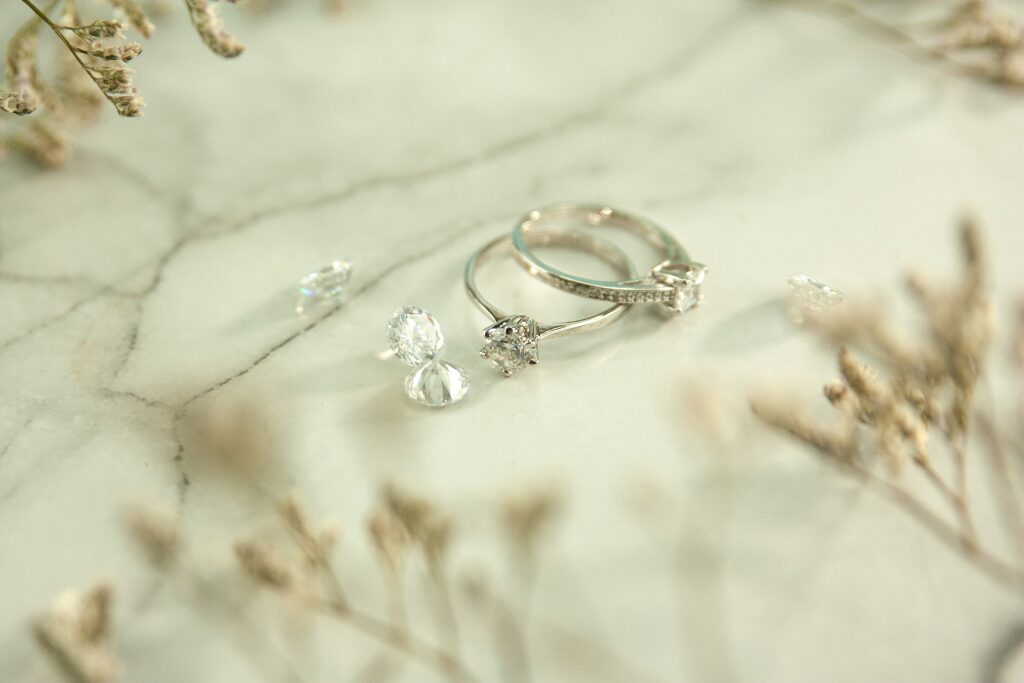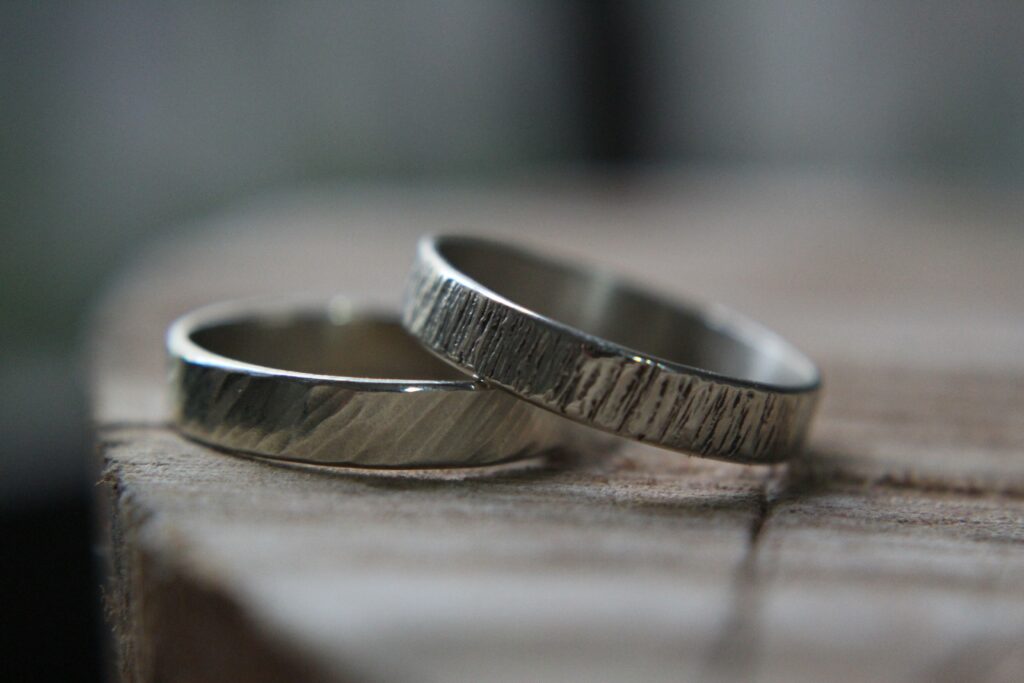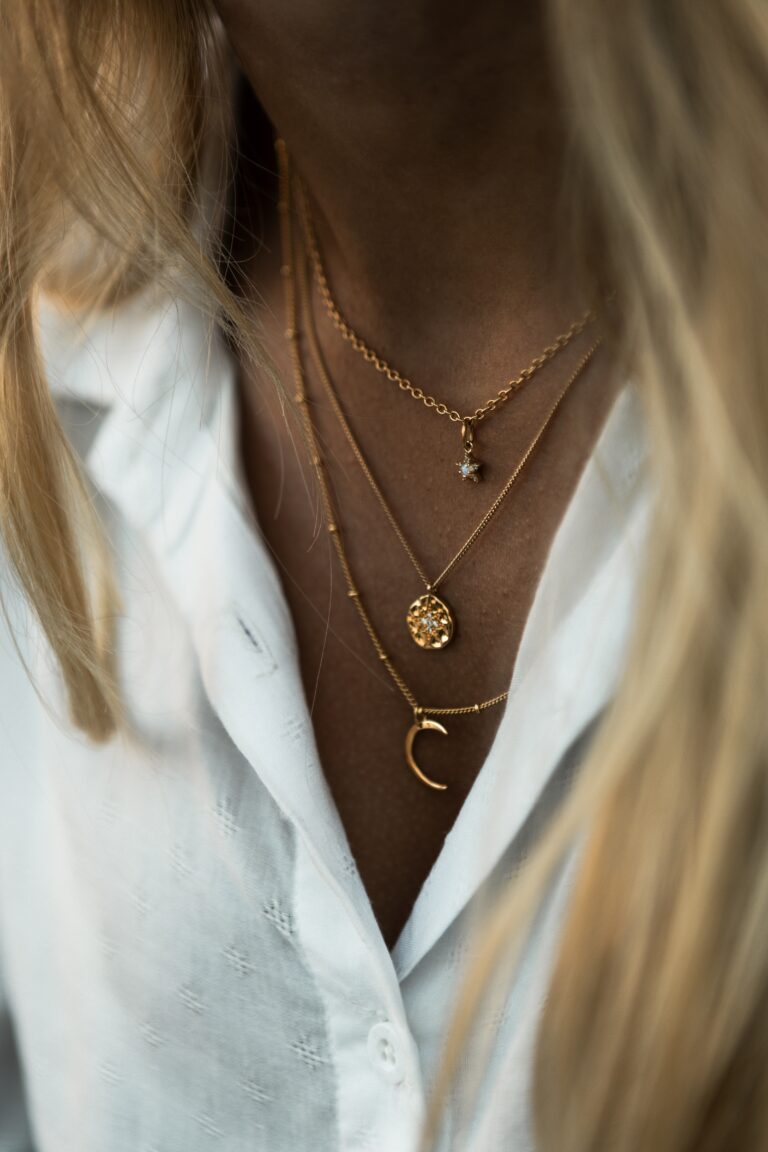Are you an eco-conscious fashionista who loves accessorizing with beautiful jewelry? Have you ever considered the impact that your jewelry choices may have on the environment? The conventional manufacturing of traditional jewelry can be damaging to our planet, with harmful chemicals and materials being used in the production process. However, there’s a better way to accessorize – by choosing eco-friendly and sustainable options like silver jewelry.
Let’s explore the negative effects of conventional jewelry manufacturing and discuss the advantages of using eco-friendly jewelry products. We’ll provide practical tips on how to make sustainable choices when buying silver jewelry and showcase some stunning designs that are both stylish and environmentally conscious. Join us on this journey toward a more sustainable future!
What is Sustainable Jewelry?
In recent years, there has been a growing interest in sustainable fashion and the ethical production of clothing. However, there’s one aspect of fashion that often gets overlooked – jewelry. The jewelry industry has been criticized for its impact on the environment and human rights violations. But what is sustainable jewelry? And how can we make more conscious choices when purchasing our accessories? In this comprehensive blog post, we’ll answer those questions and explore all aspects of sustainable jewelry.
Defining Sustainable Jewelry
Sustainable jewelry is created through environmentally friendly and socially responsible practices. It considers the entire lifecycle of a piece of jewelry, from the sourcing of materials to the creation and disposal of the product. The use of recycled and ethically sourced materials, as well as eco-friendly manufacturing methods, minimizes the negative impact of the jewelry-making process on the environment.

Sustainable jewelry is also about designing pieces that are durable, timeless, and can be worn for years to come. Creating pieces that have longevity, reduces the frequency of repurchasing and discarding jewelry, thus contributing to a circular economy.
Why is Sustainable Jewelry Important?
The traditional jewelry-making industry has been linked to various environmental and ethical concerns. Here are some reasons why choosing sustainable jewelry is important:
- Environmental impact: Traditional jewelry production involves the use of harmful chemicals and materials, such as mercury and cyanide, which can cause pollution and harm to ecosystems. The mining and extraction of metals and gemstones can also lead to deforestation, soil erosion, and water pollution.
- Human rights violations: The jewelry industry has been linked to unethical labor practices, including child labor, forced labor, and unsafe working conditions. Artisanal and small-scale mining communities are often exploited, with workers receiving little pay and no benefits.
- Longevity: Sustainable jewelry is designed to last, meaning fewer resources are required to create new pieces. By investing in quality and long-lasting jewelry, you can reduce your environmental footprint and minimize waste.
How to Identify Sustainable Jewelry Brands?
Identifying sustainable jewelry brands may seem like a daunting task, but there are a few key things to look out for when making a purchase:
- Certifications: Look for certifications such as Fairtrade, Responsible Jewelry Council, and B Corp, which assure that the brand adheres to ethical and sustainable practices.
- Eco-friendly materials: Look for jewelry made from recycled metals or alternative eco-friendly materials such as wood, glass, or recycled plastic.
- Ethical practices: Seek out brands that are transparent about their sourcing and production processes, including their labor standards and working conditions.
- Transparency: A sustainable jewelry brand should be open about its take-back and recycling programs and should have policies in place to reduce waste and avoid overproduction.

How to Buy Sustainable Silver Jewelry
Silver jewelry is a timeless classic that never goes out of style. However, the impact of conventional silver mining and manufacturing on the environment and communities has raised concerns about the industry’s ethics and sustainability. Sustainable silver jewelry is a great alternative, offering an eco-friendly and ethical option for accessorizing.
The Importance of Sustainable Jewelry
Sustainable jewelry is made through environmentally friendly and socially responsible practices. It considers the entire lifecycle of a piece of jewelry, from the sourcing of materials to the creation and disposal of the product. The use of recycled and ethically sourced materials, as well as eco-friendly manufacturing methods, minimizes the negative impact of the jewelry-making process on the environment.
Purchasing sustainable jewelry can support brands that prioritize sustainability and ethical production practices. It also contributes to reducing the demand for conventional silver, which has negative environmental and social consequences.
Here’s how to make sustainable choices when buying silver jewelry:
1. Consider Jewelry Brands That Prioritize Sustainability
When buying sustainable silver jewelry, support brands that prioritize sustainability. Some sustainable jewelry brands include Brilliant Earth, Bario Neal, and SOKO. These brands are committed to ethical production practices, including environmentally friendly materials and labor standards.
Look for certifications such as Fairtrade, Responsible Jewellery Council, and B Corp, to assure that the brand adheres to ethical and sustainable practices. Check their website and social media presence to see if they have a sustainability policy or mission statement.
2. Look for Sustainable Materials in Silver Jewelry
Sustainable silver is typically made from recycled silver or fair trade-certified silver. Recycled silver is obtained from scrap silver and repurposed into new jewelry, reducing the environmental footprint of silver mining and processing.
When buying silver jewelry, look for labels or certifications that indicate the silver is recycled or sustainably sourced. You can also ask the seller or brand directly about their sourcing and production methods.
3. Choose Recycled Silver Jewelry
Recycled silver jewelry is an excellent eco-friendly option that reduces the demands of silver mining on the planet. When purchasing recycled silver jewelry, look for brands that use certified recycled silver, such as Melissa Joy Manning and Catbird.
To determine whether a piece of silver jewelry is made from recycled silver, look for hallmarks or stamps that indicate the purity of the metal. Recycled silver is often labeled with “925,” “.925,” or “sterling.”

The Importance of Ethical Jewelry
Jewelry is often a symbol of love, commitment, and style. However, the jewelry industry has a dark side that involves environmental degradation, exploitation of workers, and violation of human rights. Ethical jewelry is an alternative that seeks to address these issues and create a more responsible and sustainable industry.
What is Ethical Jewelry?
Ethical jewelry refers to jewelry that is produced through environmentally friendly and socially responsible practices. It involves sourcing materials from certified mines or recycled sources, using non-toxic and sustainable materials, and ensuring fair labor practices throughout the supply chain. Ethical jewelry also considers the impact of the entire life cycle of the product, from mining to disposal.
Ethical jewelry is different from regular jewelry items because it prioritizes transparency, sustainability, and social responsibility. It seeks to minimize the negative impact of the jewelry industry on the environment and communities while providing consumers with high-quality and beautiful products.
Why Should You Buy Ethical Jewelry?
Choosing ethical jewelry has several benefits for both individuals and society. First, ethical jewelry supports sustainable and responsible practices that protect the environment. It reduces the use of toxic chemicals, land degradation, and water pollution associated with conventional mining and manufacturing processes. This helps to conserve natural resources and preserve biodiversity.
Second, ethical jewelry improves the standard of living of mining communities by promoting fair wages, safe working conditions, and respect for workers’ rights. It ensures that miners and artisans have access to education, healthcare, and other basic needs, leading to healthier and more prosperous communities.
Third, ethical jewelry is sustainable, meaning that it has a long-term positive impact on the environment and society. It promotes a circular economy where materials are reused, repurposed, and recycled, reducing waste and carbon emissions. It also encourages innovative and eco-friendly manufacturing methods that minimize harm to the environment.
How to Identify Ethical Jewelry Brands
Identifying ethical jewelry brands can be challenging, but there are several steps you can take to ensure that you are choosing products that align with your values. Here are some tips:
1. Research the brand: Look for information about the brand’s values, mission, and sustainability practices on its website, social media, or other online forums. Check if they have certifications such as Fairtrade, Responsible Jewellery Council, or B Corp, which indicate that they adhere to ethical and sustainable standards.
2. Check the materials: Ethical jewelry is often made from recycled or certified materials such as Fairmined gold or silver, lab-grown diamonds, or responsibly sourced gemstones. Look for labels or certifications that indicate the source of the materials.
3. Consider the supply chain: Ethical jewelry brands prioritize transparency and traceability in their supply chains. They should be able to provide information about where and how their products are made, and the working conditions of their employees and suppliers.
4. Look for independent verification: Some organizations, such as Ethical Metalsmiths, provide independent verification of ethical jewelry brands. Look for brands that have been verified by these organizations.
Some trustworthy ethical jewelry brands include Vrai, Brilliant Earth, and Catbird. These brands prioritize sustainability, ethical labor practices, and transparency in their supply chains.
Sustainability in the Jewelry Industry: A Must for a Greener Future
The jewelry industry is known for its exquisite creations that are often associated with luxury, beauty, and elegance. However, behind the glamour lies a darker side of the industry that often goes unnoticed – its environmental impact.
The Environmental Impact of the Jewelry Industry
The jewelry industry’s environmental impact stems from various factors, including mining activities, manufacturing processes, and waste disposal. Mining of precious metals and gemstones often involves deforestation, soil erosion, water pollution, and even displacement of communities. In addition, the energy-intensive manufacturing process consumes a considerable amount of energy and releases greenhouse gases, contributing to climate change. Finally, waste disposal from the industry results in landfill pollution and contamination of natural resources.
Choosing Suppliers with Responsible Mining Practices
The first step towards promoting sustainability in the jewelry industry is by selecting suppliers with responsible mining practices. Such practices ensure that the mining activity does not harm the environment, respects the rights of workers, and contributes to the social and economic development of the local communities. Ethical mining practices include using recycled materials, minimizing water usage, reducing waste, and supporting local initiatives.
By choosing suppliers with responsible mining practices, the jewelry industry can significantly reduce its environmental impact while promoting ethical values. It helps to establish long-lasting relationships with the communities where the mines operate, thus fostering trust and respect between the two parties.
Recycling and Repurposing Precious Metals and Gemstones
Recycling and repurposing of precious metals and gemstones have become increasingly important in promoting sustainability in the jewelry industry. By recycling scrap metal and gemstones, the industry can reduce the demand for new materials and minimize the environmental impact of mining. Additionally, repurposing existing jewelry into new designs reduces waste and promotes the reuse of valuable resources.
Recycling and repurposing can be achieved through various methods, including re-alloying, refining, or remelting scrap metals, or redesigning existing jewelry. Consumers can also contribute to recycling by selling or donating their unwanted jewelry to jewelers who specialize in recycling and repurposing.
Reducing Carbon Footprint and Environmental Impact in Jewelry Making Process
Reducing the carbon footprint and environmental impact in the jewelry-making process is another vital aspect of promoting sustainability in the industry. This can be achieved through various methods, including using renewable energy sources, reducing water consumption, using non-toxic chemicals, and minimizing waste.
Many jewelry brands have already adopted sustainable practices in their production process, leading to a significant reduction in their environmental impact. For example, some brands use renewable energy sources such as wind or solar power to power their manufacturing facilities. Others use non-toxic chemicals in their manufacturing processes, reducing pollution and waste.
What are some sustainable and ethical silver jewelry brands?
Silver jewelry is a popular accessory that can add elegance and shine to any outfit. However, the process of creating silver jewelry can sometimes involve unethical practices such as environmental damage and exploitation of workers. Fortunately, many responsible and eco-friendly silver jewelry brands strive towards sustainability and ethical production practices.
1. Brands using ethically sourced materials
Sourcing materials responsibly is a crucial first step toward sustainability. Here are some examples of silver jewelry brands that prioritize ethical sourcing:
- SOKO: SOKO uses recycled brass and reclaimed cow horn to create their unique jewelry pieces. They also work with local artisans in Kenya to support community development.
- Article 22: Article 22 uses recycled silver from bombs and bullets in Laos, providing fair wages to artisans and supporting community projects.
- The Brave Collection: The Brave Collection uses recycled sterling silver and ethically-sourced gemstones to create beautiful jewelry. They also support fair labor practices and empower women through their products.
2. Brands prioritizing transparency in their supply chains
Transparency is key to ensuring ethical production. Here are some silver jewelry brands committed to transparency:
- Vrai: Vrai discloses their suppliers, materials, and production processes, all while using sustainably sourced materials, including recycled silver.
- GLDN: GLDN values transparency and uses recycled silver in its production process. They also disclose their manufacturing processes and offer customization options for their pieces.
- Bario Neal: Bario Neal sources its materials ethically and is transparent about their suppliers and production processes. They also prioritize fair labor practices and work with independent jewelers to support community development.
3. Brands committed to responsible and sustainable production
Sustainability is more than just about sourcing materials. It’s also about minimizing waste, promoting fair labor practices, and reducing environmental impact. Here are some silver jewelry brands that prioritize responsible and sustainable production:
- Mejuri: Mejuri is committed to responsible production and designs timeless pieces using recycled materials. They also prioritize ethical labor practices and offer transparent pricing for their products.
- Catbird: Catbird uses recycled metals and ethically sourced gemstones in its jewelry pieces. They also prioritize reducing their carbon footprint and support local charities through their products.
- SOKO: SOKO’s production process involves minimal waste and low-water usage. They also work with local artisans to create job opportunities and promote economic development.
As consumers, we have the power to support brands that prioritize ethical and sustainable practices. By choosing to purchase from these brands, we can help build a more responsible and sustainable fashion industry.


